The Best ESG Stocks in the Dow
Only a third of the stocks in the Dow rank as industry leaders according to MSCI's ESG rankings. Fortunately, most of those who do also are favored by Wall Street analysts.


Profit and prosper with the best of Kiplinger's advice on investing, taxes, retirement, personal finance and much more. Delivered daily. Enter your email in the box and click Sign Me Up.
You are now subscribed
Your newsletter sign-up was successful
Want to add more newsletters?

Delivered daily
Kiplinger Today
Profit and prosper with the best of Kiplinger's advice on investing, taxes, retirement, personal finance and much more delivered daily. Smart money moves start here.

Sent five days a week
Kiplinger A Step Ahead
Get practical help to make better financial decisions in your everyday life, from spending to savings on top deals.

Delivered daily
Kiplinger Closing Bell
Get today's biggest financial and investing headlines delivered to your inbox every day the U.S. stock market is open.

Sent twice a week
Kiplinger Adviser Intel
Financial pros across the country share best practices and fresh tactics to preserve and grow your wealth.

Delivered weekly
Kiplinger Tax Tips
Trim your federal and state tax bills with practical tax-planning and tax-cutting strategies.

Sent twice a week
Kiplinger Retirement Tips
Your twice-a-week guide to planning and enjoying a financially secure and richly rewarding retirement

Sent bimonthly.
Kiplinger Adviser Angle
Insights for advisers, wealth managers and other financial professionals.

Sent twice a week
Kiplinger Investing Weekly
Your twice-a-week roundup of promising stocks, funds, companies and industries you should consider, ones you should avoid, and why.

Sent weekly for six weeks
Kiplinger Invest for Retirement
Your step-by-step six-part series on how to invest for retirement, from devising a successful strategy to exactly which investments to choose.
Here's something for investors to celebrate on Earth Day 2021: Environmental, social and corporate governance (ESG) matters have never been more important to shareholders and, by extension, the folks leading the nation's publicly traded companies.
As investors' focus on ESG stocks has grown, sustainability reporting has gone mainstream. Bank of America Securities recently found that 90% of companies in the S&P 500 publish corporate social responsibility (CSR) reports, up from 20% in 2011.
And that's not just because corporations are bending to societal pressures. It turns out that taking ESG issues seriously is good for the bottom line.
"It pays to be green," say Bank of America Securities equity and quant strategists Savita Subramanian and Marisa Sullivan. "We see higher multiples for low emissions, net zero targets, and water efficiency."
Even members of the Dow Jones Industrial Average – that old and elite bastion of just 30 blue-chip companies – are increasingly concerned with how they measure up when it comes to ESG matters. However, it might come as a disappointment to some investors that only a third of the Dow's constituents rank as ESG leaders in their respective industries.
MSCI, the investment research firm specializing in indexes, portfolio analysis and various analytic tools, has set itself up as a leader in ESG ratings. The firm maintains MSCI ESG ratings on nearly 3,000 companies, and it has become a go-to provider of information for investors who hold ESG issues close to their investment processes and hearts. We decided to see where all 30 Dow companies rank as ESG stocks using MSCI ratings, which range from industry leader (AAA, AA), to average (A, BBB, BB) to laggard (B, CCC), and found that just 10 of them are considered "leaders."
So read on as we look at the 10 best ESG stocks within the Dow 30. Happily, in many cases, it does indeed pay to appear to be green. Dow stocks with high ESG scores often happen to be some of analysts' favorite blue-chip stocks to buy, too.
Data is as of April 20, courtesy of S&P Global Market Intelligence, MSCI and YCharts, unless otherwise noted.
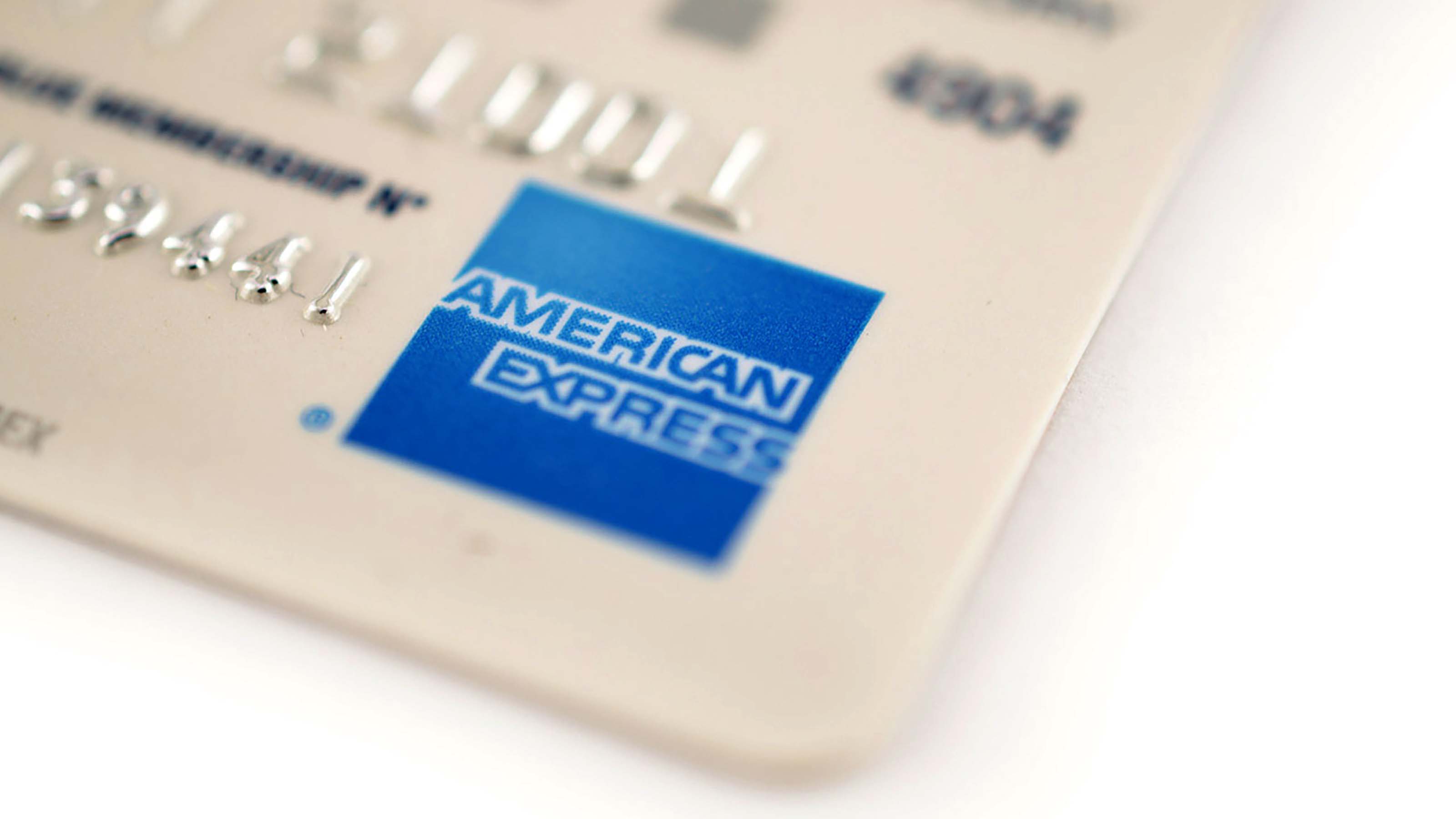
American Express
- Market value: $116.6 billion
- Dividend yield: 1.2%
- MSCI ESG rating: AA
The first of the Dow's AA-rated ESG stocks is American Express (AXP, $145.10), which also gets a consensus recommendation of Buy from Wall Street analysts. The pros are especially impressed by the credit card company's outsized long-term growth prospects.
Indeed, the Street expects AXP to deliver average annual earnings per share (EPS) growth of more than 40% over the next three to five years.
And for what it's worth, AmEx is one of Warren Buffett's all-time favorite stocks. The CEO of Berkshire Hathaway first bought shares in the firm in 1963 and remains its largest shareholder (by far!) today.
That said, some analysts are concerned about the slow recovery of spending on travel and entertainment as we emerge from the worst of the pandemic.
"Non-travel and entertainment (T&E) spending has recovered to pre-Covid levels and actually grew 1% in the quarter, but T&E remains very depressed (down 69% YoY for Q3)," writes CFRA Research analyst Chris Kuiper, who rates AXP at Hold.
For investors who put ESG at the forefront of their investment process, they'll be happy to hear that American Express' rating makes it a leader in the consumer finance industry. Indeed, only 7% of the firms in AXP's industry received an AA rating.
American Express stands out in scores for corporate governance, human capital development, privacy and data security, and carbon emissions. It gets average marks for corporate behavior, consumer financial protection and access to finance.
Lastly, MCSI says AXP is not a laggard on any of the key issues evaluated for the company's industry.
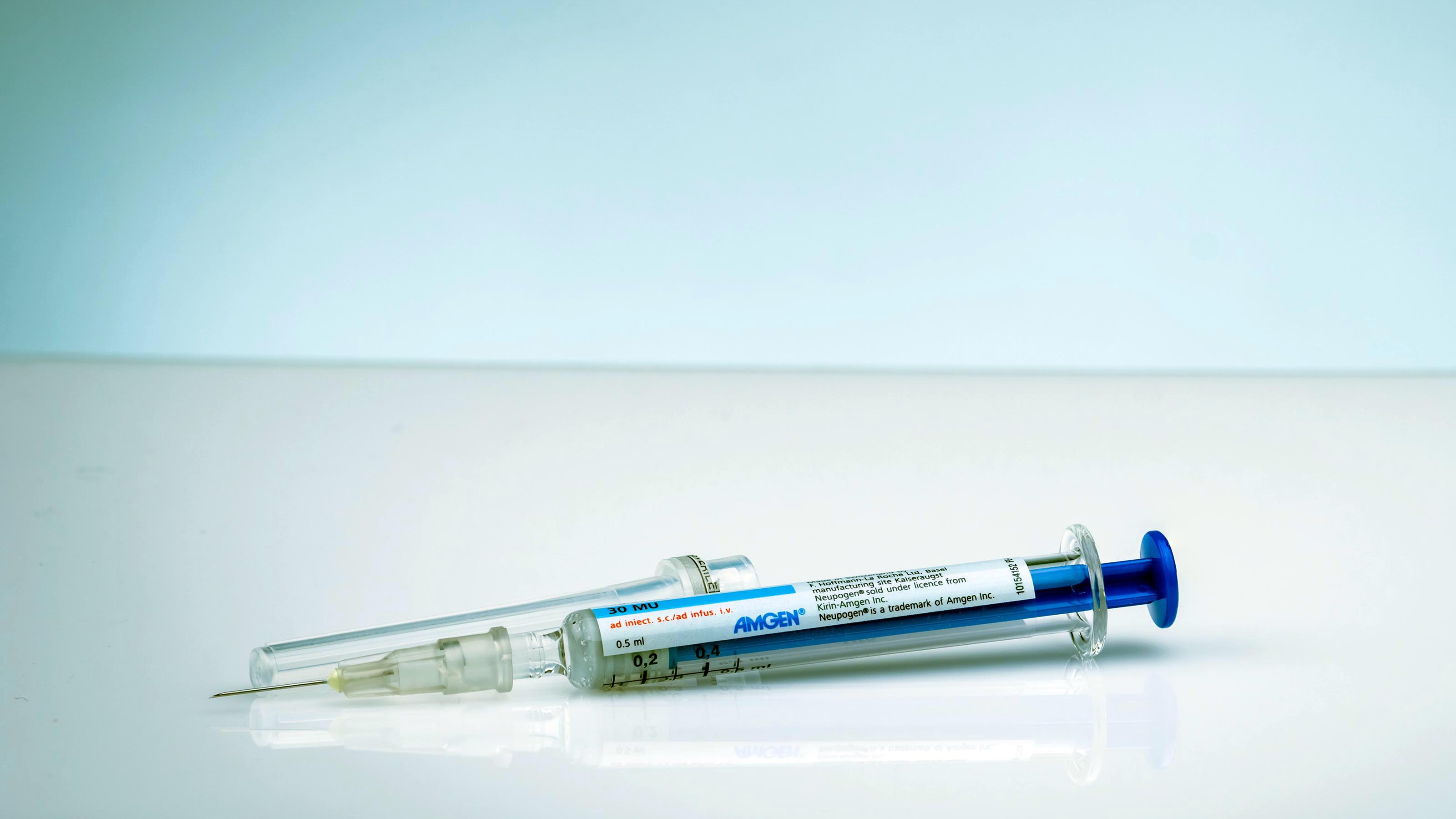
Amgen
- Market value: $149.2 billion
- Dividend yield: 2.7%
- MSCI ESG rating: AA
Amgen (AMGN, $259.14), which replaced Pfizer (PFE) in the Dow last year, gets an AA ESG rating from MSCI – a level it first attained in June 2019.
Only 39 biotech companies, or 13% of the sector, score an AA rating from MSCI, making Amgen an industry leader.
Although MSCI considers AMGN to be an industry laggard when it comes to product safety and quality, that assessment is offset by average grades for corporate governance and corporate behavior.
What puts Amgen among the top ESG stocks in the Dow are its industry-leader rankings for human capital development, access to healthcare, and toxic emissions and waste. The bottom line is that AMGN compares very favorably against industry peers on ESG matters.
As for Wall Street's view of Amgen's stock, it leans bullish. Analysts' consensus recommendation stands at Buy, according to a survey by S&P Global Market Intelligence. Of the 31 analysts covering Amgen tracked by S&P GMI, nine rate it at Strong Buy, five say Buy, 14 call it a Hold, one says Sell and one calls it a Strong Sell. One analyst has no opinion.
"Amgen is posting solid adjusted earnings, driven by innovative drugs, including biosimilars, and investing its strong cash flow into R&D and acquisitions, such as its recently announced purchase of Five Prime," writes Argus Research analyst David Toung, who rates the stock at Buy. "Another growth driver is Otezla, an immunology drug acquired from Bristol Myers Squibb.
"We also expect the company to benefit from the launch of new pipeline products and from its collaboration agreement with Chinese biotech company Beigene."
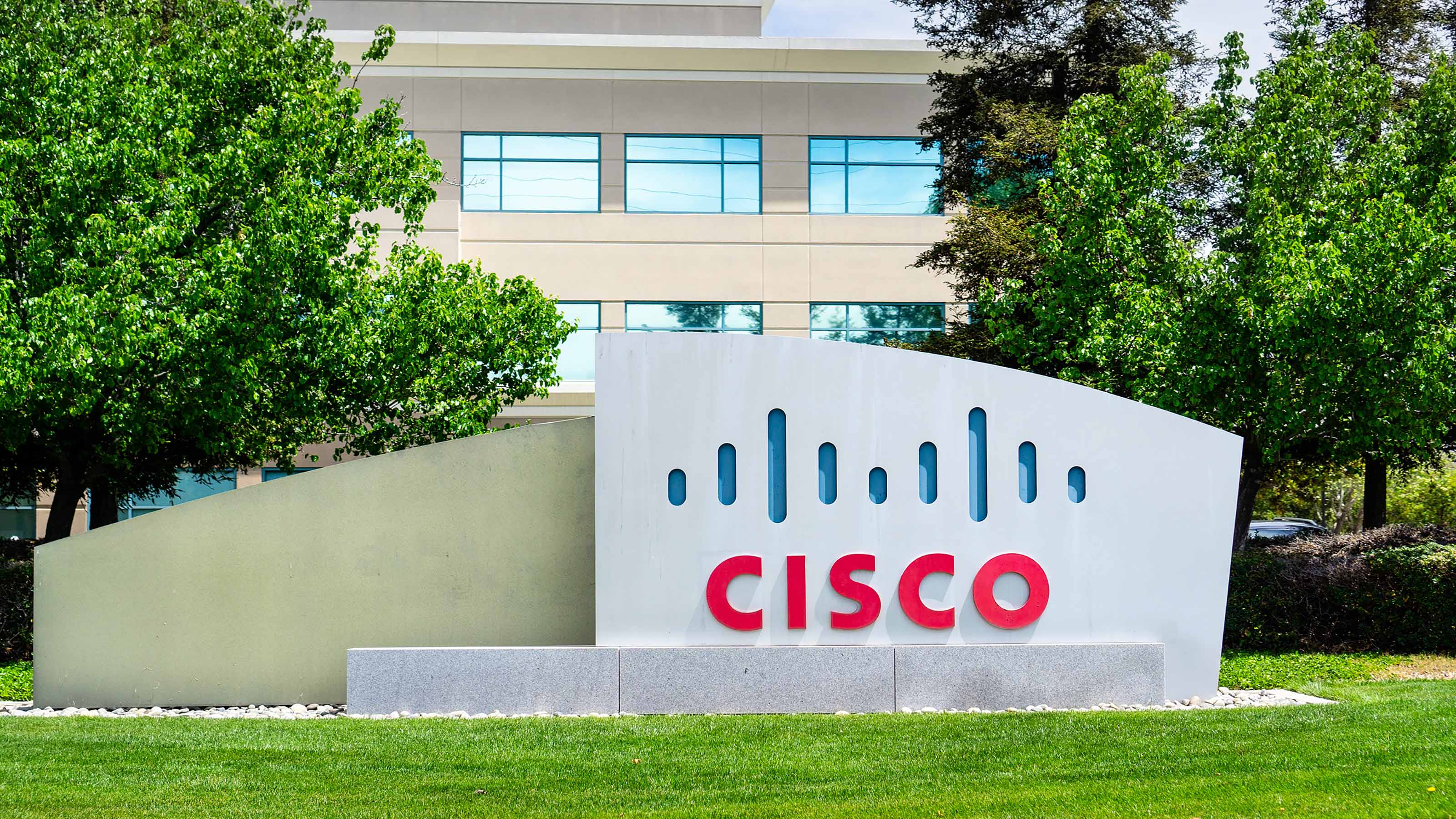
Cisco Systems
- Market value: $218.3 billion
- Dividend yield: 2.9%
- MSCI ESG rating: AA
Cisco Systems (CSCO, $51.79) gets a consensus Buy recommendation from the Street – and even higher marks from MSCI when it comes to its commitment to ESG principles.
CSCO's rating of AA puts it in fairly elite company within the technology hardware, storage & peripherals industry, MSCI says. Indeed, only about a fifth of the industry scores a rating as high as Cisco's – and none get the ultimate rank of AAA.
Cisco's industry leadership status stems from top marks on human capital development and opportunities in clean technology. It gets average grades for controversial sourcing, supply chain labor standards and corporate behavior, among other key issues. Furthemore, CSCO is not a laggard on any of the key issues MSCI evaluates for the company's industry.
The pros aren't quite as upbeat on CSCO as a stock. Yes, of the 26 analysts covering Cisco tracked by S&P Global Market Intelligence, nine rate it at Strong Buy, six say Buy and 11 have it at Hold. However, analysts' average target price of $53.50 gives CSCO implied upside of just about 3% in the next year or so.
Whether some analysts hike their price targets or downgrade shares remains to be seen. Analysts don't exactly expect spectacular growth from the company anytime soon, either. The Street forecasts average annual EPS growth of just 5.4% over the next three to five years.
CSCO is transitioning from being heavily dependent on hardware such as internet routers and switches to higher-growth software and cloud services. The bull case rests, in part, on accelerating corporate spending on information technology (IT) as the economy reopens and workers return to their offices.
"Strong IT spending should prove a tailwind to Cisco estimates through fiscal 2022," writes Wolfe Research analyst Jeff Kvaal, who upgraded the stock to Outperform (Buy, essentially) from Peer Perform (Hold) in mid-April.

Coca-Cola
- Market value: $233.3 billion
- Dividend yield: 3.1%
- MSCI ESG rating: AA
Although the pandemic put a crimp on sales at restaurants, bars, cinemas, live sports and other events, analysts are optimistic about Coca-Cola's (KO, $54.17) prospects as a recovery stock, giving shares a high conviction recommendation of Buy.
The drinks giant also is among the best ESG stocks in the Dow, claiming a MSCI rating of AA. That makes it a leader among 53 companies in the beverages industry. Only 15% of the industry gets an AA rating, with another 9% ranking at the highest level of AAA.
Coca-Cola stands out for high scores on packaging materials and waste, health and safety, and product carbon footprint. Its overall score gets dinged by being a laggard on opportunities on health and nutrition. KO is considered average by industry standards on water stress and corporate behavior, among other issues, according to MSCI.
As for the Street's view? Eleven analysts rate Coca-Cola's shares at Strong Buy, six say Buy and none call it a Hold. They expect the company to deliver average annual EPS growth of 6.6% over the next three to five years, per S&P Global Market Intelligence.
Analysts at UBS Global Research are bullish on KO, citing improving volumes, among other factors.
"We maintain our Buy on KO as a topline recovery story overlaying an accelerated business transformation that should lead to compounding recovery at the bottom line," writes UBS analyst Sean King in a note to clients. "We are encouraged by volume trends that tracked pre-pandemic levels beginning in March and believe KO will continue to outpace the asynchronous economic recovery."
Investors also should not forget Coca-Cola's status as a Dividend King. The beverage company has lifted its payout annually for almost 60 years.
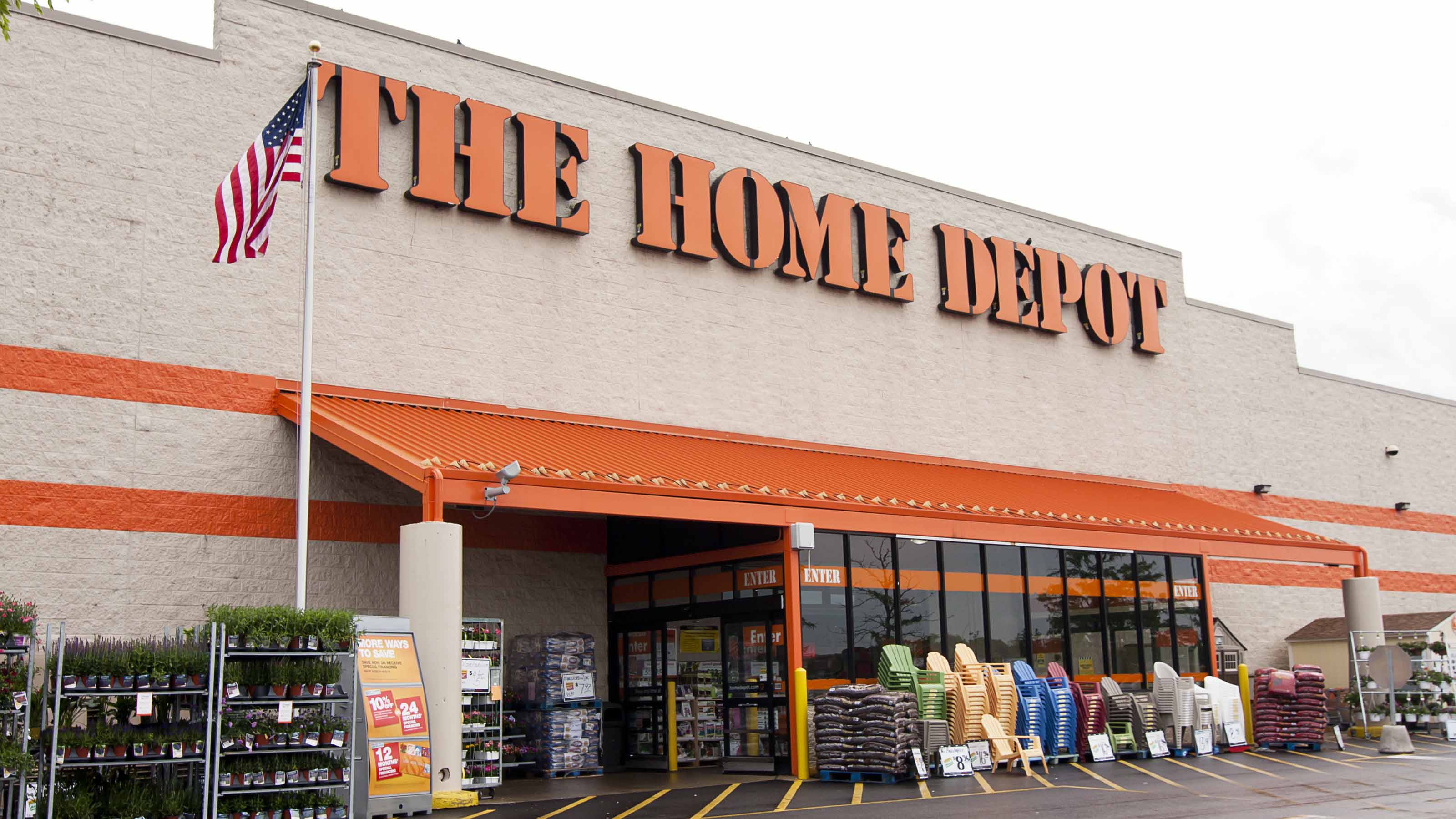
Home Depot
- Market value: $348.4 billion
- Dividend yield: 2.0%
- MSCI ESG rating: AA
Investors who are conscientious about ESG factors can feel good about Home Depot (HD, $323.96).
A country basically cooped up at home has been great for business at the nation's largest home improvement retailer – and analysts see more upside ahead for HD stock. At the same time, Home Depot corporate gets good marks when it comes to MSCI's ESG assessment.
HD's AA ESG rating makes it a leader among 89 companies in the retail – consumer discretionary industry, per MSCI. Only 12% of the industry's firms score an AA rating, while just 3% get MSCI's coveted AAA. And Home Depot has maintained that rating for four consecutive years.
The home improvement chain's spot among the Dow's top ESG stocks is chalked up to its attention to chemical safety, product carbon footprint and corporate governance. Labor relations, raw material sourcing, privacy and data security, and corporate behavior are relevant areas where HD gets average only marks vs. peers.
In no key issue areas was Home Depot found to be an industry laggard, MSCI notes.
Meanwhile, the Street leans heavily bullish on the name, thanks in part to HD's success in navigating both the depths of the pandemic and the current nascent recovery.
"HD's performance supports our thesis that the company is well positioned to deliver future earnings growth and market-share gains," writes Argus Research analyst Christopher Graja, who rates the stock at Buy. "With excellent financial strength, we believe that the shares stand out for diversified investors who are looking for exposure to discretionary retail."
Of the 35 analysts tracked by S&P Global Market Intelligence covering HD stock, 17 rate it at Strong Buy, eight say Buy, nine have it at Hold and one calls it a Strong Sell. They expect HD to generate average annual EPS growth of 8.2% over the next three to five years.
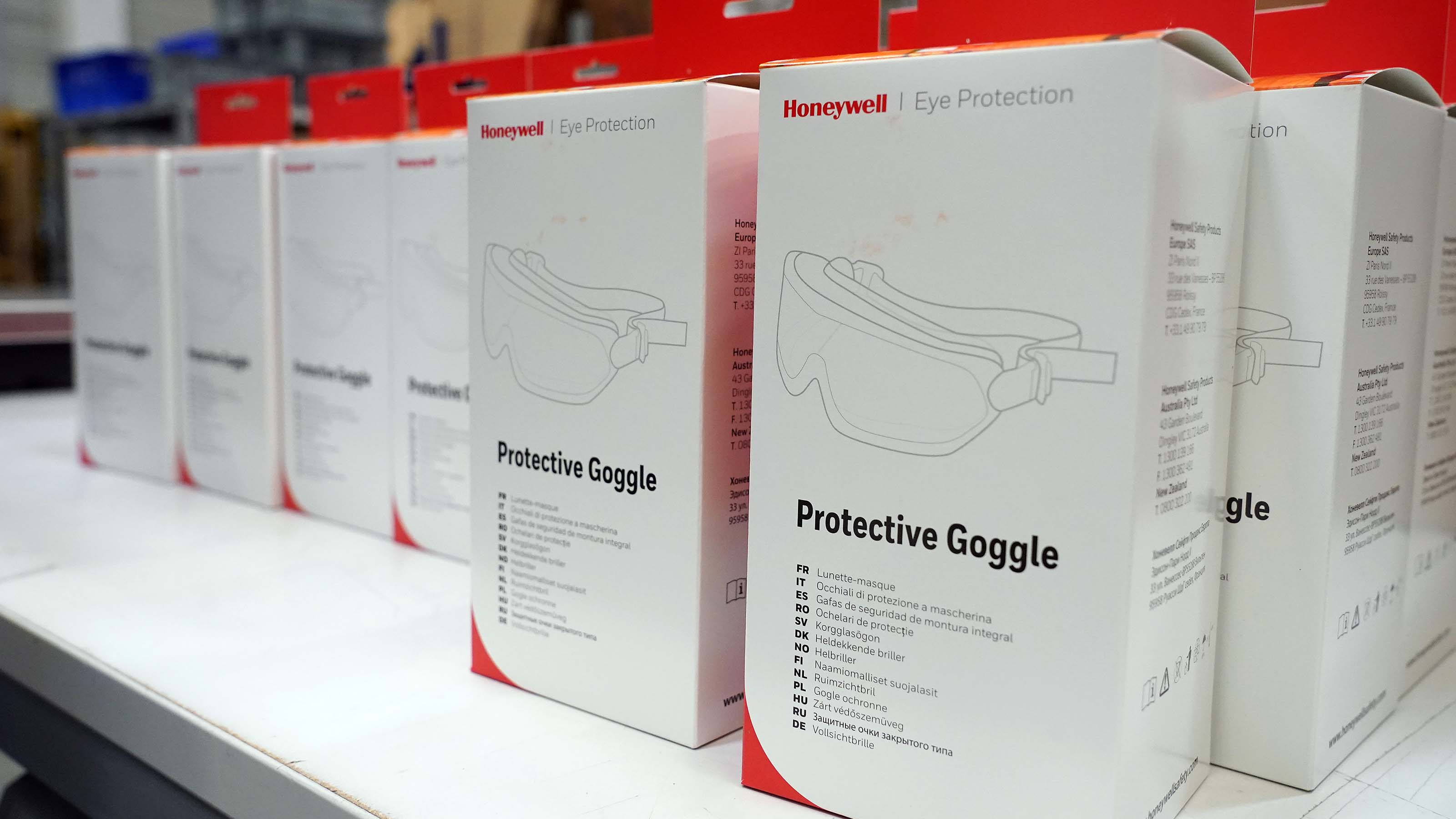
Honeywell
- Market value: $157.9 billion
- Dividend yield: 1.6%
- MSCI ESG rating: AA
Honeywell (HON, $227.33), which returned to the Dow last year to replace the former United Technologies, is already one of its top ESG stocks.
Honeywell scores well against its 35 industry peers by MSCI's ESG ratings. Only 14% of the industrial conglomerates industry can equal its AA mark, and just 8% of its peers score higher.
The Street is similarly optimistic about its growth prospects and potential for share-price appreciation. The Buy-rated company – with 8 Strong Buy, five Buy, nine Hold and one Sell recommendation – is forecast to generate average annual EPS growth of more than 11% over the next three to five years.
With a gain of just 7% for the year-to-date through April 20, shares in Honeywell have lagged peers – as well as the Dow – but bulls say it's only a matter of time before they catch up.
"Honeywell is a leading blue-chip industrial company that we think is poised to generate low double-digit earnings growth over the long term," writes Argus Research analyst John Eade, who rates shares at Buy. "We believe that Honeywell will continue to benefit from its diverse product lines, as well as from its strong presence in the commercial aerospace and commercial construction markets."
The analyst adds that the pandemic "upended the global economy and Honeywell's record of growth. We think both will eventually recover." Eade also likes the "well-managed company's history of paying and raising the dividend." The payout has more than doubled since 2014, from 45 cents per share to its current 93 cents.
On the ESG front, HON stands out among peers for its corporate behavior, MSCI says. It gets average marks for corporate governance and opportunities in clean tech, and is an industry laggard for its labor management practices.
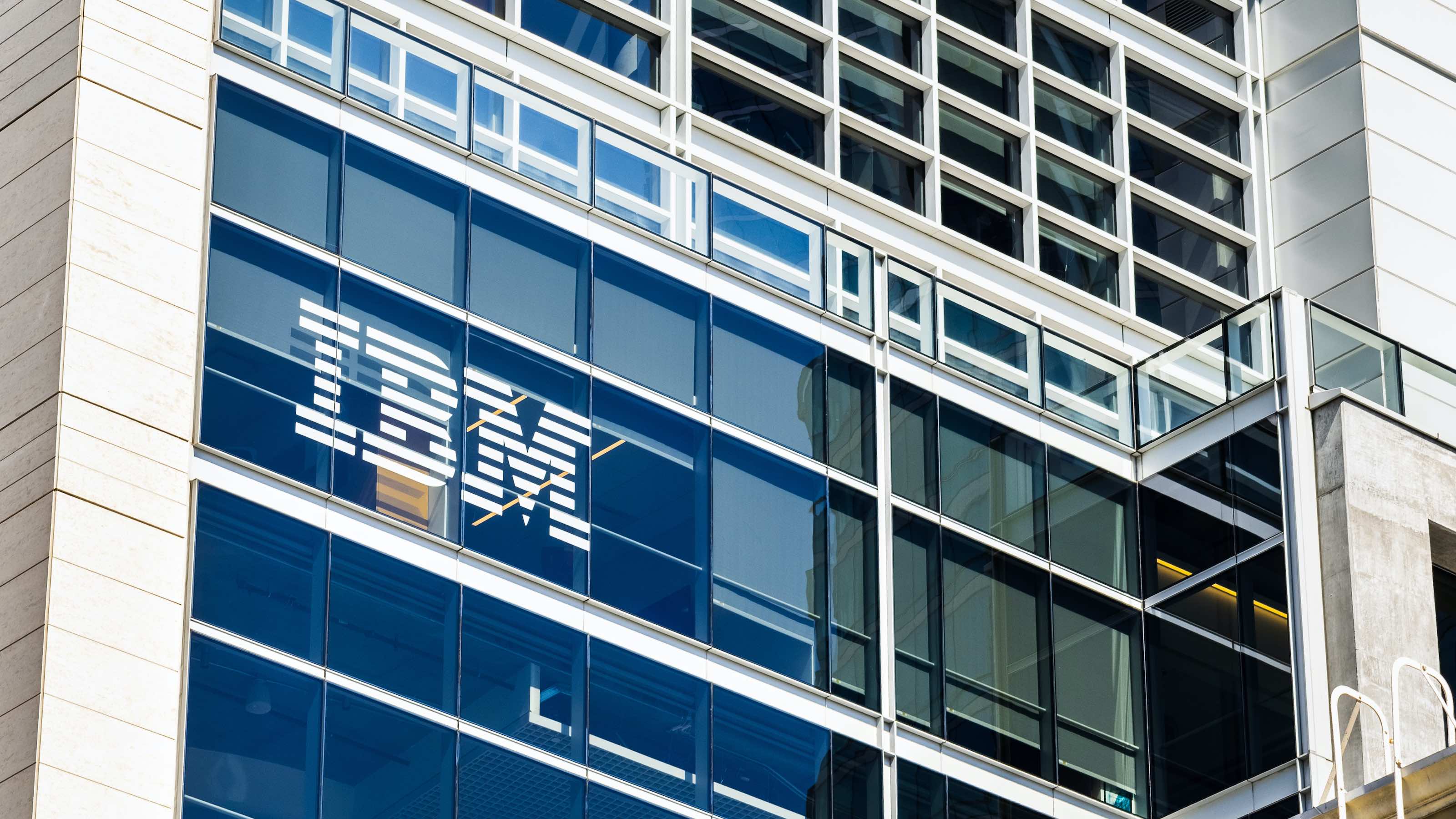
International Business Machines
- Market value: $123.3 billion
- Dividend yield: 4.7%
- MSCI ESG rating: AA
International Business Machines (IBM, $138.16) recently reported better-than-expected top- and bottom-line results for its first quarter of 2021, thanks to growth in cloud computing and solid contributions from its mainframe business.
It's just what long-suffering shareholders in Big Blue needed to hear, and shows that the tech giant's operating performance might be catching up to what are already high marks on ESG issues.
IBM has been an industry leader when it comes to ESG concerns for several years now. Its AA rating dates back to May 2017. Share performance is a different matter. IBM stock is off more than 13% since May 1, 2017, vs. a gain of almost 62% for the Dow Jones Industrial Average.
The Street has become incrementally more optimistic on the stock over the past 12 months, but analysts' consensus recommendation has remained stuck at Hold the entire time. Currently three analysts rate IBM at Strong Buy, one says Buy, 11 call it a Hold and one says Sell.
Their average target price of $138.89 gives the stock virtually no implied upside over the next year.
"One quarter does not make a trend but Q1 was a good start, as transactional deal activity started to firm and alleviate pressure in hardest hit areas (e.g., Services)," writes CFRA Analyst David Holt, who rates IBM at Hold. "However, we still view the shares as a 'show-me story.'"
When it comes to matters of ESG, the picture is decidedly brighter, however. Only 19% of the 140 companies in the software & services industry score an AA rating, per MSCI. A paltry 3% earn the top grade of AAA.
IBM stands out as a leader on privacy and data security, and opportunities in clean tech, MSCI says. Offsetting that somewhat are industry laggard marks for corporate behavior and human capital development.
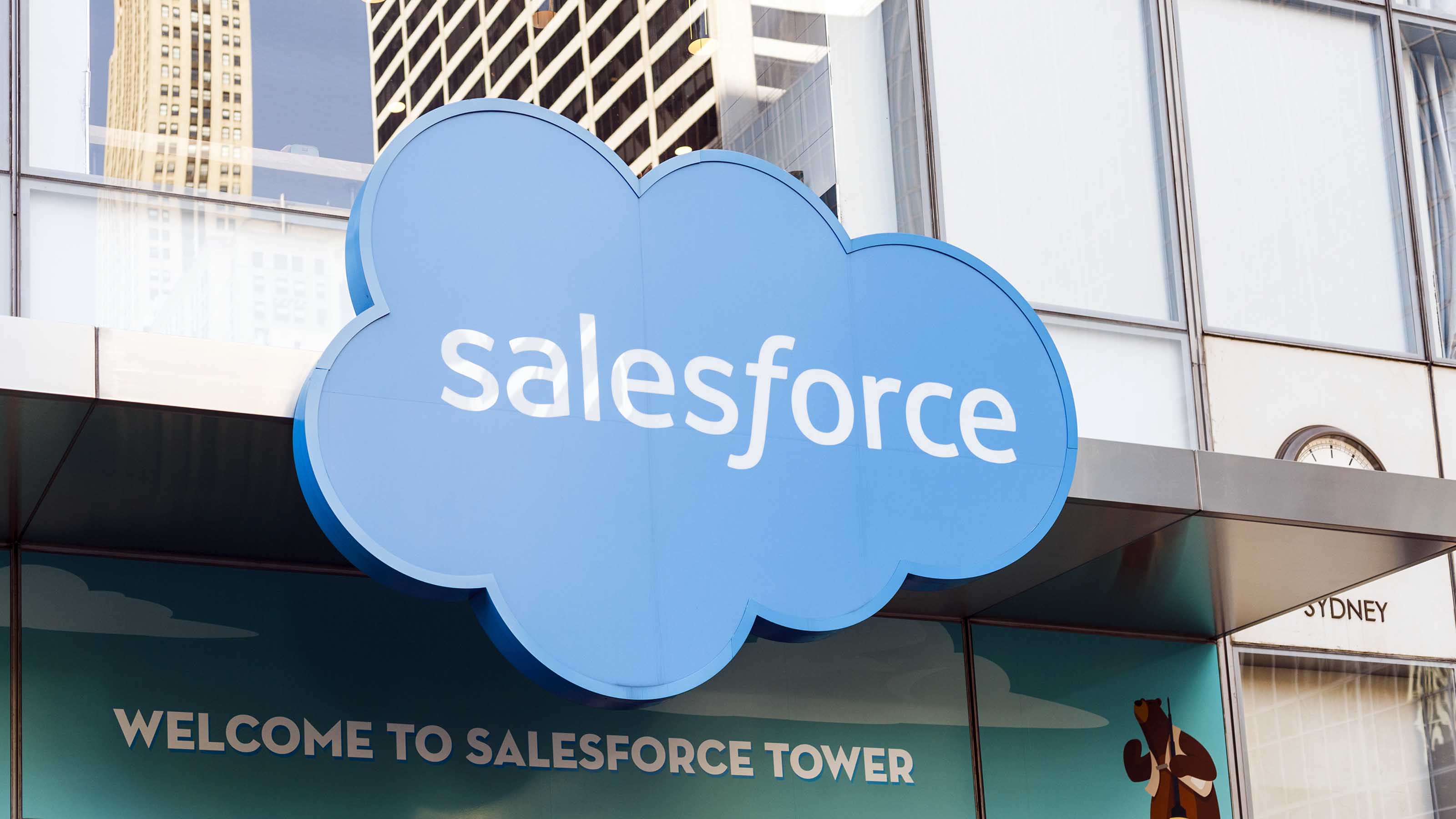
Salesforce.com
- Market value: $209.1 billion
- Dividend yield: N/A
- MSCI ESG rating: AA
Salesforce.com (CRM, $227.96), which also was added to the Dow last year, gets an AA ESG rating from MSCI, thanks to high marks for human capital development and privacy and data security.
However, industry laggard status for issues of corporate governance have weighed on CRM's score in the past. As recently as October 2019, Salesforce was among the market's top ESG stocks, sitting on a perfect AAA rating from MSCI. But it was downgraded to AA in November of last year.
The current ESG designation is still pretty darn good, however. It puts CRM on par with IBM as an industry leader in the software & services industry. Just average marks on corporate behavior, carbon emissions and opportunities in clean tech also militate against CRM notching an even higher score.
As for what the Street thinks of the stock, CRM enjoys a high-conviction Buy recommendation from analysts. Indeed, by S&P Global Market Intelligence's ratings system, shares sit on the cusp of a Strong Buy recommendation.
Of the 44 analysts covering Salesforce tracked by S&P, 26 call it a Strong Buy, nine have it at Buy and eight call it a Hold. One analyst has no opinion on shares. With an expected average annual EPS growth rate of more than 25% over the next three to five years, it's easy to see why most of the Street is so bullish on the name.
The company's $27.7 billion acquisition of Slack Technologies, announced at the end of 2020, also bolsters the bull case, analysts say.
"If Salesforce wants to expand beyond its core gold mine of sales and marketing departments and further into the enterprise ... [the deal] represents a major shot across the bow against Microsoft," writes Wedbush analyst Daniel Ives, who rates the stock at Outperform (equivalent of Buy).
Ives adds that an ongoing corporate digital transformation puts CRM in prime position to benefit over the coming years "given its end-to-end cloud product suite."
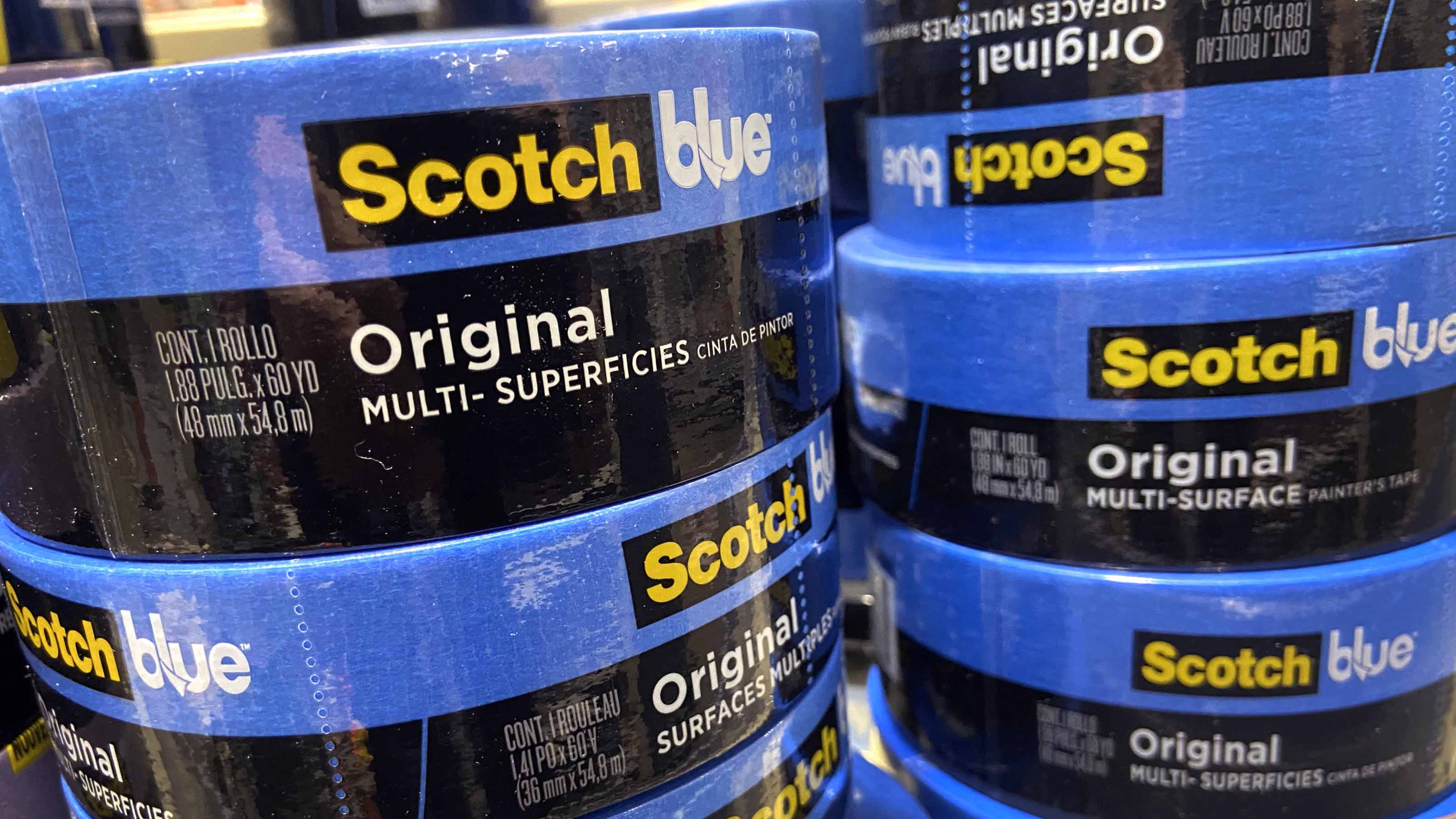
3M
- Market value: $114.9 billion
- Dividend yield: 3.0%
- MSCI ESG rating: AAA
3M (MMM, $198.30) is the first of only two Dow stocks to receive a perfect MSCI ESG rating of AAA.
Unfortunately, the Street thinks considerably less of the stock.
MMM gets a firm consensus recommendation of Hold from the 19 analysts covering the stock tracked by S&P Global Market Intelligence. Two of them call the stock a Strong Buy, and two more say Buy, but two say Sell and one rates it at Strong Sell. The largest concentration of opinions is right in the middle, however, with 12 pros saying 3M is a Hold.
Valuation plays a part in the Street's tepid consensus view. Analysts expect average annual EPS growth of only 6.8% over the next three to five years, and yet MMM trades at more than 20 times this year's estimated earnings.
Somewhat ironically, ESG issues contribute to at least one analysts' dim view of the stock. 3M has pledged to invest $1 billion toward achieving new water and climate goals. Shareholders are also voting on whether to transition the firm's corporate structure to one of a public benefit corporation.
The uncertainty over ESG matters – as well as regulatory risks over polyfluoroalkyl substances and litigation risks related to lawsuits over allegedly defective 3M earplugs – have forced some analysts to back off the name.
"While an economic recovery and large valuation discount present interesting tactical and short-term opportunities, we believe these potential sources of upside are outweighed by ongoing and potential litigation and ESG risks over the next 12 months," writes UBS Global Research analyst Markus Mittermaier, who rates MMM at Sell.
As far as its position among the market's best ESG stocks goes, only 8% of the companies in the industrial conglomerates industry can boast of having 3M's AAA rating. Furthermore, 3M has held the coveted top rating for five consecutive years.
The company stands out for its industry leadership on issues of corporate governance, toxic emissions and waste, and opportunities in clean tech. Corporate behavior and labor management practices are average for its industry. MSCI says 3M doesn't lag industry peers on any key ESG issues.
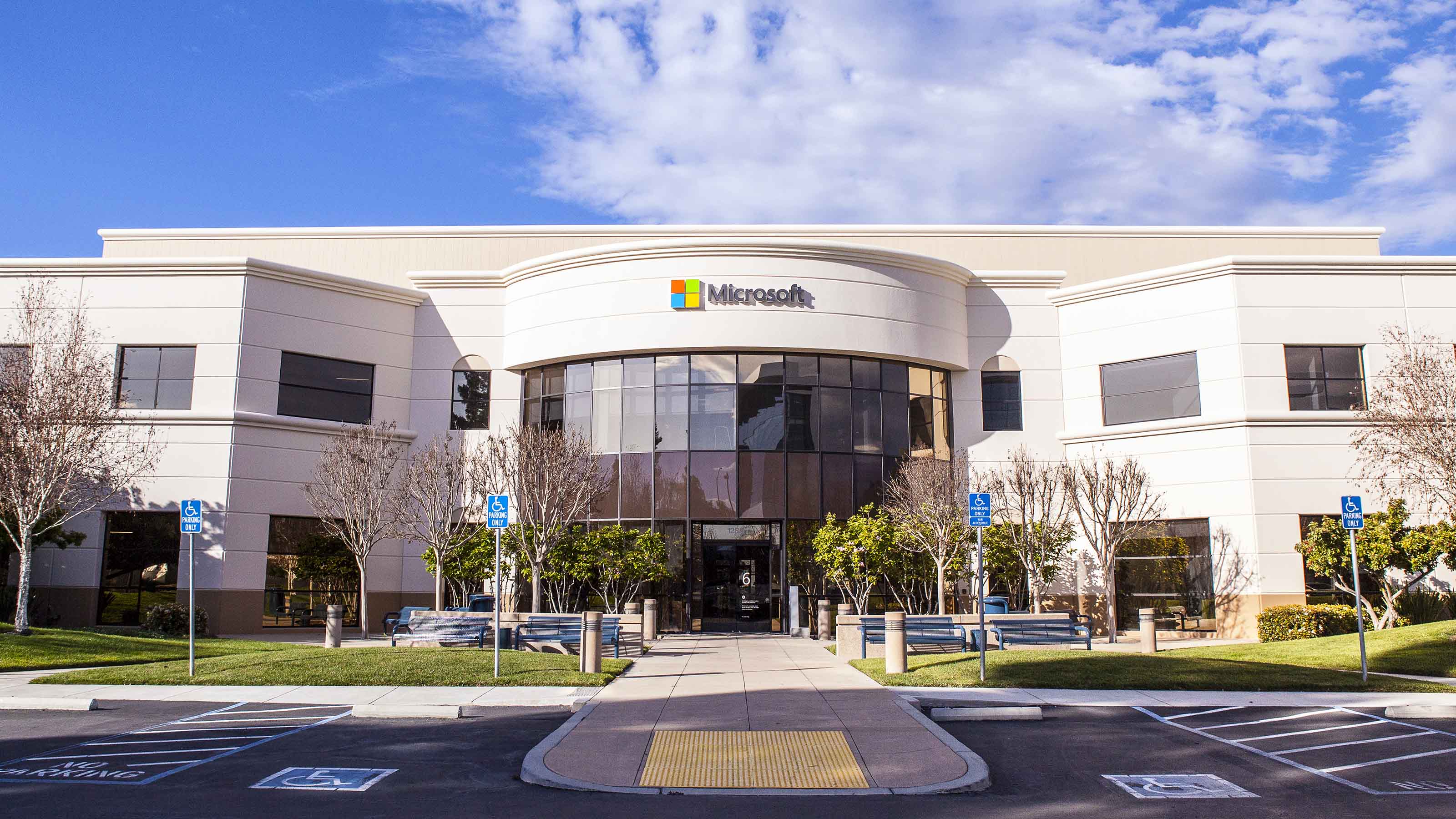
Microsoft
- Market value: $1.9 trillion
- Dividend yield: 0.9%
- MSCI ESG rating: AAA
Microsoft (MSFT, $258.26) is the only Dow stock to get top marks on ESG matters and a consensus recommendation of Strong Buy from Wall Street analysts.
The software and cloud computing behemoth has had a perfect MSCI ESG rating of AAA since May 2017. Only 3% of the 140 companies in the software & services industry can claim such lofty leadership status, per MSCI.
MSFT stands out among the best ESG stocks for its handling of corporate governance, privacy and data security, and opportunities in clean tech. The firm gets industry average marks when it comes to issues of human capital development and carbon emissions.
There is, however, a blotch on Microsoft's record. It lags industry peers on ratings for corporate behavior.
Still, analysts' ardor for MSFT stock is almost unblemished.
"Microsoft has refocused the company around Azure and Office 365, which we view as several large, multi-year secular growth engines that should help drive mid-to-high single-digit Productivity and Business Process growth and low double-digit Intelligent Cloud growth in coming years," writes Stifel analyst Brad Reback, who rates the stock at Buy.
Reback adds that strong commercial cloud revenue, gross margin growth and expense discipline "should lead to accelerating operating profit and free cash flow generation in coming quarters."
Twenty-five analysts surveyed by S&P Global Market Intelligence rate MSFT stock at Strong Buy. Eight analysts call it a Buy and three have it at Hold. They expect the company to generate average annual EPS growth of 14.1% over the next three to five years.
Profit and prosper with the best of Kiplinger's advice on investing, taxes, retirement, personal finance and much more. Delivered daily. Enter your email in the box and click Sign Me Up.

Dan Burrows is Kiplinger's senior investing writer, having joined the publication full time in 2016.
A long-time financial journalist, Dan is a veteran of MarketWatch, CBS MoneyWatch, SmartMoney, InvestorPlace, DailyFinance and other tier 1 national publications. He has written for The Wall Street Journal, Bloomberg and Consumer Reports and his stories have appeared in the New York Daily News, the San Jose Mercury News and Investor's Business Daily, among many other outlets. As a senior writer at AOL's DailyFinance, Dan reported market news from the floor of the New York Stock Exchange.
Once upon a time – before his days as a financial reporter and assistant financial editor at legendary fashion trade paper Women's Wear Daily – Dan worked for Spy magazine, scribbled away at Time Inc. and contributed to Maxim magazine back when lad mags were a thing. He's also written for Esquire magazine's Dubious Achievements Awards.
In his current role at Kiplinger, Dan writes about markets and macroeconomics.
Dan holds a bachelor's degree from Oberlin College and a master's degree from Columbia University.
Disclosure: Dan does not trade individual stocks or securities. He is eternally long the U.S equity market, primarily through tax-advantaged accounts.
-
 Dow Leads in Mixed Session on Amgen Earnings: Stock Market Today
Dow Leads in Mixed Session on Amgen Earnings: Stock Market TodayThe rest of Wall Street struggled as Advanced Micro Devices earnings caused a chip-stock sell-off.
-
 How to Watch the 2026 Winter Olympics Without Overpaying
How to Watch the 2026 Winter Olympics Without OverpayingHere’s how to stream the 2026 Winter Olympics live, including low-cost viewing options, Peacock access and ways to catch your favorite athletes and events from anywhere.
-
 Here’s How to Stream the Super Bowl for Less
Here’s How to Stream the Super Bowl for LessWe'll show you the least expensive ways to stream football's biggest event.
-
 Dow Leads in Mixed Session on Amgen Earnings: Stock Market Today
Dow Leads in Mixed Session on Amgen Earnings: Stock Market TodayThe rest of Wall Street struggled as Advanced Micro Devices earnings caused a chip-stock sell-off.
-
 Nasdaq Slides 1.4% on Big Tech Questions: Stock Market Today
Nasdaq Slides 1.4% on Big Tech Questions: Stock Market TodayPalantir Technologies proves at least one publicly traded company can spend a lot of money on AI and make a lot of money on AI.
-
 Fed Vibes Lift Stocks, Dow Up 515 Points: Stock Market Today
Fed Vibes Lift Stocks, Dow Up 515 Points: Stock Market TodayIncoming economic data, including the January jobs report, has been delayed again by another federal government shutdown.
-
 Stocks Close Down as Gold, Silver Spiral: Stock Market Today
Stocks Close Down as Gold, Silver Spiral: Stock Market TodayA "long-overdue correction" temporarily halted a massive rally in gold and silver, while the Dow took a hit from negative reactions to blue-chip earnings.
-
 Nasdaq Drops 172 Points on MSFT AI Spend: Stock Market Today
Nasdaq Drops 172 Points on MSFT AI Spend: Stock Market TodayMicrosoft, Meta Platforms and a mid-cap energy stock have a lot to say about the state of the AI revolution today.
-
 S&P 500 Tops 7,000, Fed Pauses Rate Cuts: Stock Market Today
S&P 500 Tops 7,000, Fed Pauses Rate Cuts: Stock Market TodayInvestors, traders and speculators will probably have to wait until after Jerome Powell steps down for the next Fed rate cut.
-
 S&P 500 Hits New High Before Big Tech Earnings, Fed: Stock Market Today
S&P 500 Hits New High Before Big Tech Earnings, Fed: Stock Market TodayThe tech-heavy Nasdaq also shone in Tuesday's session, while UnitedHealth dragged on the blue-chip Dow Jones Industrial Average.
-
 Dow Rises 313 Points to Begin a Big Week: Stock Market Today
Dow Rises 313 Points to Begin a Big Week: Stock Market TodayThe S&P 500 is within 50 points of crossing 7,000 for the first time, and Papa Dow is lurking just below its own new all-time high.
